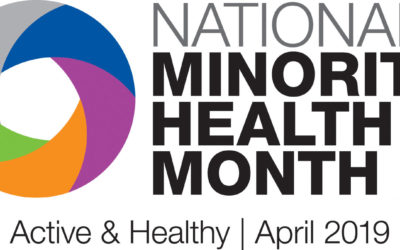THE CREDIT FOR CARING ACT:
What You Need to Know
Background: On May 17, 2017, this bi-partisan proposed bill introduced in the U.S. House and Senate called the Credit for Caring Act, (S.1151/H.R. 2505) would amend the Internal Revenue Code to create a federal, nonrefundable tax credit of up to $3,000 for family caregivers who work while also financially help and assist in caring for their parents, spouses, children with disabilities or other loved ones. Introduced by Senators Joni Ernst (R-IA), Michael Bennet (D-CO), Shelley Moore Capito (R-WV) and Elizabeth Warren (D-MA), and Representatives Tom Reed (R-NY) and Linda Sánchez (D-CA), this bill is an important step toward supporting caregivers that work while caring for family members. AARP and other national organizations have endorsed the Credit for Caring Act. This bill would help defray some of the costs to family caregivers, 78 percent of whom use their own money to assist with caring for a loved one, and help ensure that they can continue working.
Issue: Today, over 40 million Americans provide long term assistance and care for adult loved ones today. Unpaid caregiver costs are estimated to be valued at a staggering $470 billion dollars annually (more than total Medicaid spending in 2013). In addition, an estimated 3.7 million family caregivers provide care to a child younger than 18 with a medical, behavioral or other condition or disability, and 6.5 million family caregivers assist both adults and children. Family caregivers as-sist with necessary daily life functions, including bathing and dressing, preparing meals, manag-ing medications, driving to appointments, and managing finances. (Source: AARP 2016 Survey Report)
What will the Bill Do?
- The Bill would give eligible family caregivers the opportunity to receive a tax credit for 30 percent of the qualified expenses above $2,000 paid to help a loved one, up to a maximum credit amount of $3,000 if the caregiver meets the following criteria:
- Is a spouse, adult child, parent or another relation named under the “dependent” definition
- Helps a loved one, of any age, who meets certain functional or cognitive limitations or other requirements, as certified by a licensed health care practitioner
- May or may not live with the loved one
- Have more than $7,500 in earned income for the taxable year, and
- Can document qualified expenses.
- Index certain dollar amounts and income levels to inflation
- Coordinate with other existing tax provisions to prevent double dipping, and
- Phase out at higher income levels.
Status of the Bill:
This bill was referred to the House, Ways and Means Committee.
What You Can Do:
- Attend a Town Hall in your congressional district
- Contact Your U.S. Senator and House Representatives at www.senate.gov and www.house.gov
U.S. Capitol Switchboard (202) 224-3121.
You can download a copy of this article here: Credit for caring Act.pdf
OTHER NEWS
April Is National Minority Health Month
This April, join The Black Women’s Agenda, Inc. in celebrating National Minority Health Month. This year, the U.S. Department of Health and Human Services Office of Minority Health (OMH) will join partners in raising awareness about the important role an active lifestyle plays in keeping us healthy. Their theme for the 2019 observance is Active & Healthy, which will “allow OMH and minority health advocates throughout the nation to emphasize the health benefits of incorporating even small amounts of moderate-to-vigorous physical activity into our schedules.
Black Women Focus on Aging Mastery
The Black Women’s Agenda recently hosted a summit themed, “I Am the Change: Living Your Best Life at Every Age,” at Morgan State University in Baltimore, MD. Sponsored by AARP and featuring leading experts in the fields of health, education, and economic security, the event focused on the importance of health and wellness in the aging process.
“Too often black women are focused on everyone and everything except themselves,” said panel moderator Dr. Rockeymoore Cummings. “Our concern for and work on behalf of our families and communities competes with our ability to implement self-care strategies that support our physical, emotional, spiritual, and socioeconomic wellbeing.”
March is Women’s History Month
This March, join The Black Women’s Agenda, Inc. as we celebrate Women’s History Month. Congress first declared March as Women’s History month in 1987. Since then, every year there’s a Presidential Proclamation to announce the month and to honor women who have made a notable impact in history.
According to the National Women’s History Alliance, “In February 1980, President Carter issued the first Presidential Proclamation declaring the Week of March 8th 1980 as National Women’s History Week. In the same year, Representative Barbara Mikulski, who at the time was in the House of Representatives, and Senator Orrin Hatch co-sponsored a Congressional Resolution for National Women’s History Week 1981. This co-sponsorship demonstrated the wide-ranging political support for recognizing, honoring, and celebrating the achievements of American women.
© 2025 The Black Women’s Agenda, Inc. All Rights Reserved. Privacy Policy








